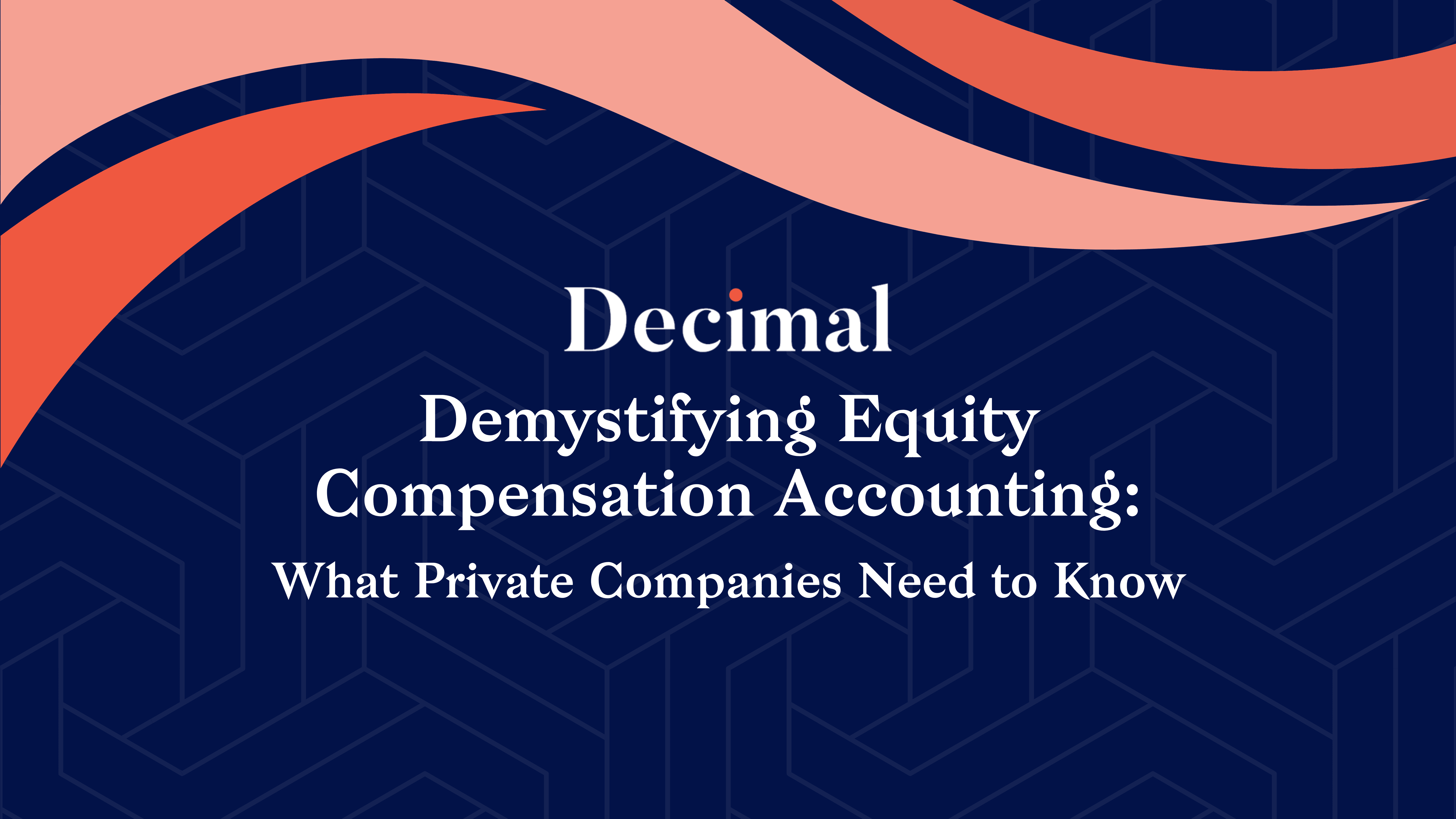Why Equity Compensation Requires Careful Accounting
Unlike cash-based compensation, equity awards are governed by specialized rules under ASC 718 (formerly FAS 123R), which require:
- Fair value measurement on the grant date
- Ongoing expense recognition over the vesting period
- Detailed footnote disclosures in financial statements
- Coordination with legal, tax, and cap table management systems
Inaccurate accounting can result in misstated income, incorrect tax filings, or problems during due diligence or fundraising.
Types of Equity Awards and Their Accounting Impact
Private companies commonly issue the following equity-based instruments:
1. Stock Options (ISO and NSO)
Stock options give employees the right to purchase shares at a set price. These are the most common forms of equity compensation in startups.
Accounting considerations:
- The expense is based on the fair value of the grant date, typically calculated using the Black-Scholes model.
- Expense is recognized over the vesting period using a straight-line or graded schedule.
- Companies must consider the expected terms, volatility, and risk-free rate inputs.
2. Restricted Stock Awards (RSAs) and Restricted Stock Units (RSUs)
RSAs are actual shares issued with restrictions, while RSUs are a promise to issue shares upon vesting.
Key differences:
- RSAs are valued at fair market value on the grant date and expensed over the vesting period.
- RSUs often trigger expense recognition upon vesting or settlement, especially in privately held firms requiring a liquidity event.
3. Phantom Equity or Stock Appreciation Rights (SARs)
These offer the value of equity without issuing actual shares. While attractive for keeping ownership centralized, they are treated as liabilities and revalued each period.
Accounting challenge:
- Because these awards are settled in cash or at cash-equivalent value, they must be remeasured quarterly at fair value, creating income statement volatility.
Valuation Requirements and 409A Compliance
Private companies must establish their shares' fair market value (FMV) to account for equity grants properly. This is typically done via a third-party 409A valuation.
Why 409A matters:
- Ensures options' strike price is at or above FMV to avoid immediate tax consequences for employees.
- Provides audit and investor defensibility.
- Must be updated at least annually or upon a material event (fundraise, acquisition, etc.).
Failure to maintain current 409A valuations can invalidate equity awards or trigger IRS penalties.
Common Pitfalls in Equity Compensation Accounting
Companies often underestimate the complexity of equity accounting. Watch out for:
- Backdating or informal equity grants: Grants may not be valid for accounting or legal purposes without formal board approval.
- Poor coordination between finance and legal: Misaligned records between the cap table and the GL can lead to reporting inconsistencies.
- Lack of audit trail: Missing documentation for fair value assumptions, grant approvals, or modification terms creates compliance risk.
Startups planning future audits, M&A, or IPO must establish clean, well-documented equity accounting processes early on.
Best Practices for Private Companies
- Centralize cap table and equity tracking tools
- Use platforms like Carta, Pulley, or Shareworks to maintain accurate records and integrate with your finance systems.
- Document all key assumptions
- Record the basis for Black-Scholes inputs and vesting schedules. Maintain copies of 409A reports, board resolutions, and grant agreements.
- Align with your accounting calendar
- Reconcile equity activity monthly and review with your external accountant or controller quarterly to ensure timely reporting.
- Plan for audits or exits
- If you anticipate a capital raise, audit, or acquisition, work with a partner to review historical equity accounting and clean up any gaps in advance.
- Get expert help when needed
- Don't try to navigate ASC 718 alone. Equity accounting intersects with tax, legal, and valuation areas—seek advisors with cross-functional expertise.
Conclusion
Equity compensation is a powerful growth tool, but it also brings a high level of accounting complexity that can't be ignored. With the right systems, documentation, and processes, private companies can offer equity confidently while remaining compliant and audit-ready.
If you're looking for expert guidance to simplify your tax filing process, schedule a time with a Decimal expert at https://www.decimal.com/contact-us. We'll help you structure and account for equity compensation with clarity and precision.
Getting started in days.
Ready to simplify your accounting? Schedule a call with our team and explore your options. We’d love to hear from you!

